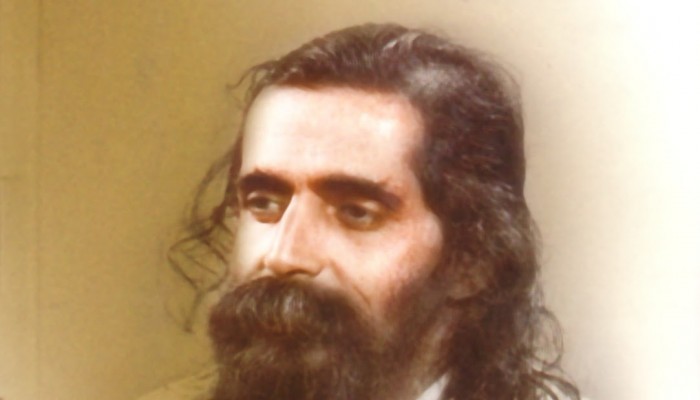Guruji Golwalkar’s Reflections on the Final Refuge for Mankind
- In Society
- 11:40 AM, Aug 17, 2020
- Niraj Pareek
Note: This essay is the second part in the series of articles based on Guruji's Bunch of Thoughts. Here is the link to first part-https://myind.net/Home/viewArticle/guruji-golwalkars-thoughts-on-our-world-mission
Guruji's speech tries to search for the real cause of happiness, which as per our Shastras is not by the enjoyment of the senses, but the real source of happiness lies within oneself and not without. The example of the modern day western societies is talked about in detail and how their pursuit for material happiness is leading to cut throat competition that is leading to the destruction of their social fabric. The two driving urges of modern societies: “Permissiveness” and “Competition” – both are leading them to social disruption, conflicts, wars, etc. In their thrust for a better living standards is pulling them down.
Examples of our ancient traditions are talked about how we need to look inwards by trying to reach a state where we can be happy without the aid of any external object. That is the state of Mukti or Moksha. The speech ends with how the unity amongst the Hindu brethren can play an important role in showing direction to the world at large.
There are some nations in the world which pride themselves on being “progressive modern societies”. It would be instructive to examine how far the dominant note of their life – which is the pursuit of material happiness- is conducive to the real progress and happiness of man. The first aspect of this pursuit of pleasure is process of never ending competition. Each one competes with the other is amassing objects of enjoyment. The second aspect is what is nowadays described as “permissive society”.
In simple words, “permissiveness” means, the individual is left free to indulge in whatever way he chooses to enjoy himself. There is no restraint of any kind on him. It is unbridled licentious behavior with respect to sex, food, drinks, family life, social intercourse and all such aspects. This is also reflected in their talk, writing and thinking as well. The first and foremost effect of this trend would be the destruction of social fabric. When the individuals start asserting that it is after all a contract between individuals, that there is no sanctity attached to it and so he is free to break it, then the basis of social integrity itself falls to the ground. The entity called the “society” will then disrupt and dissipate.
It is only when the society is looked upon as a living corporate body of which the individual is a limb that the real unifying social consciousness will be ingrained in him. Then alone will he be able to restrain his erratic impulses and harmonize them with the interests of the society. And this is exactly what the Hindu philosophy propounds.
The other element of the modern society is “competition.” It is claimed that healthy competition is necessary for progress. Competition which implies bettering one’s performance over the other soon gives place to the urge to become better by pulling down the other. The craze for winning by any means, fair or foul, and unwholesome rivalry are beginning to vitiate that field. If this could happen in the case of sports, then what to speak of other fields where material interests are directly involved!
Since their concept of happiness centers entirely around the satisfaction of the desires of senses, the term ‘raising the standard of living’ has only come to mean more and more amassing of the objects of physical enjoyment, which becomes the major preoccupation of the individual to the exclusion of all other thoughts and aspirations. In order to procure the objects of physical pleasures, accumulation of wealth follows. This leads to conflicts and conflagrations. And once this process starts there is no end to it. Moral bonds are snapped. Normal human emotions are dried up. The value and virtues which ought to distinguish man from the rest of animal kingdom vanish.
If one were to dispassionately observe the characteristics of the present-day so-called civilized modern societies, they appear to tally, almost word to word, with the attributes of the asuras as detailed in the Bhagavad-Gita! And thus we find that the two prominent features of the modern Western society, i.e. – “permissiveness” and “competition”, have led human society away from peace and happiness.
To begin with, there are the bodily and mental needs and appetites. The fulfilment of these hungers gives him a sense of happiness. Greater the attempts for satisfaction of desires, greater will be the dissatisfaction. Our Shastras have declared, “Na jatu Kamah Kamanam upabhogena shamyati”: The desires are not quenched by enjoyment of senses. The Hindu philosophy steps in here to offer a cogent solution. It says, the real source of happiness lies within oneself and not without.
Then what is the process for reaching that state?
It is a matter of common experience that a restless mind can never be happy. It is only when the mind is calm and peaceful that man enjoys happiness. To achieve such a quiet and tranquil state of mind it is necessary to see that the various types of desires do not raise their heads in the mind.
When examined on the touchstone of this basic philosophy of supreme happiness, can the so- called progressive societies with their cut-throat competition, jealousy, hatred and violence be ever expected to give rise to human happiness? In fact, the opposite is the case. Everything is calculated to incite more and more desires. The flames of desire are fed more and more. And so long as desires are unfulfilled, mind is restless. It always hankers after the objects of senses. How can such a mind become quiet and peaceful?
In Bharat, all our training is directed towards the single object of achieving mental peace. Patanjali in his Yoga-Sutras has advised that when one sees others are endowed with prosperity and happiness and are virtuous and meritorious one is advised not to be jealous but to be happy and congratulate them. One is advised to achieve progress by one’s efforts but one should not indulge in competition or jealousy. So also, Patanjali advises that when we see another man sinful and in distress, our natural reaction should be one of compassion. Such an attitude on our part will bring peace and tranquility to our mind resulting in inner happiness to ourselves.
In order to instill the spirit of self-restraint the concept of Chaturvidha Purushartha was propounded. This four-fold goal of life – Dharma, Artha, Kama and Moksha – helps one to lead a self-restrained, balanced and harmonious way of life.
The mission of Hindu consolidation that the RSS has taken up is inspired by this vision of unlocking the door or supreme happiness for entire mankind. And as days go by, we are confident, the so called progressive modern societies are also bound to take refuge in this ancient yet living wisdom of this holy land. As the Sanskrit saying goes,
तावद गर्जन्ति शास्त्राणी जम्बुका विपिने यथा।
न गर्जन्ति महातेजा यावद वेदान्त-केसरी।।
(“The jackals of other theories will be howling only so long as the Lion of Vedanta does not give out the great and all powerful roar!”)
Image Credits: Ennapadam Panchajanya







Comments